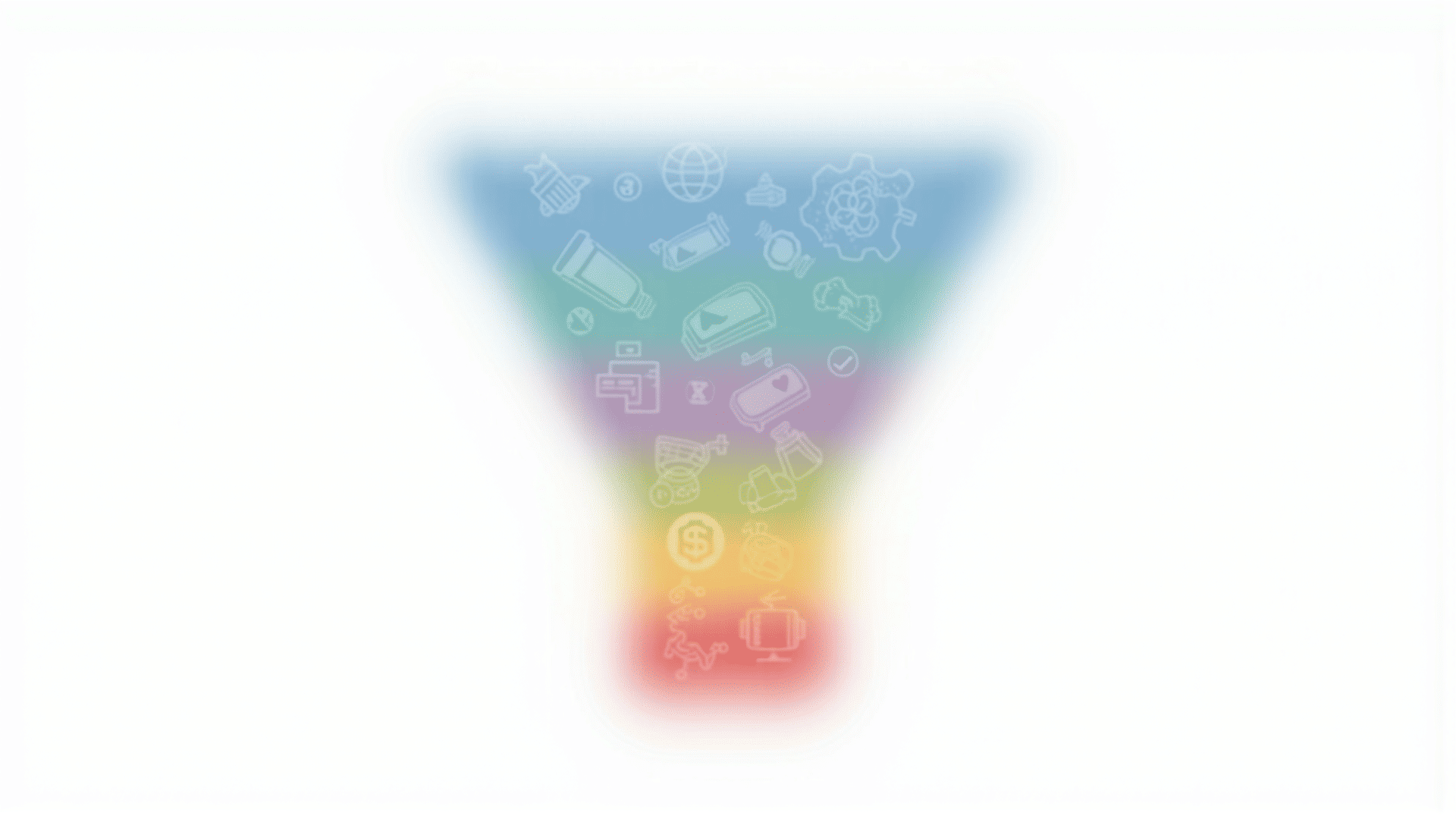Marketing funnels are central to the success of any brand seeking to convert prospects into loyal customers. Understanding each stage of the funnel and optimizing strategies accordingly can significantly enhance conversions and customer engagement. In this comprehensive guide, we delve into the complexities of marketing funnels, providing invaluable insights to help refine your approach.
Understanding the Stages of a Marketing Funnel
Traditional marketing funnels are typically depicted with the basic stages of awareness, interest, desire, and action. However, modern funnels often incorporate additional phases like retention and advocacy to accommodate post-purchase behavior, which is crucial in nurturing long-term customer relationships.
-
Awareness: This is the widest part of the funnel, where potential customers first learn about your brand. Effective tactics at this stage include public relations, social media advertising, content marketing, and search engine optimization. The objective is to attract a broad audience and maximize exposure.
-
Interest: Once awareness is established, the next objective is to nurture prospects by piquing their interest. Engage them with informative content that highlights the benefits and features of your products or services, using channels such as email marketing, webinars, and blog posts. The goal is to build a connection and start a conversation that moves the customer further down the funnel.
-
Desire: In this stage, prospects are considering your offerings. It’s crucial to address their pain points and illustrate how your product or service can effectively solve them. Tailored content like case studies, testimonials, and personalized offers can be highly impactful. Building desire involves appealing to emotions and values that resonate with your target audience.
-
Action: This is where the conversion happens. Prospects become customers by making a purchase decision. To ensure a smooth transition from desire to action, ensure your pricing is transparent, the checkout process is seamless, and customer service is readily available to assist with any queries. Limited-time offers and discounts can encourage immediate action.
-
Retention: A sale should not mark the end of the customer journey. Retaining customers is more cost-effective than acquiring new ones. To keep them engaged, provide excellent after-sales support, exclusive loyalty programs, and consistent communication through newsletters and personalized follow-ups.
-
Advocacy: The final goal is to turn satisfied customers into brand advocates who willingly promote your business to others. Incentivize their advocacy through referral programs and make sharing their positive experiences easy through social media or review platforms. Genuine enthusiasm can powerfully influence potential customers, effectively creating a new starting point in the funnel for others.
Optimizing Your Marketing Funnel
-
Data-Driven Decisions: Regularly analyze your funnel's performance through metrics like conversion rates, customer acquisition costs, and customer lifetime value. Use this data to identify weak areas and adjust your strategies accordingly.
-
Content Personalization: Generic messages are no longer effective. Tailor your marketing messages to address the specific needs and behaviors of different audience segments. Utilize customer data to craft personalized experiences that resonate more deeply.
-
Automation Tools: Leverage marketing automation tools to streamline processes and ensure consistent communication throughout the customer journey. Automation can free up valuable time for more strategic tasks, allowing for personalized yet scalable engagement with your audience.
-
A/B Testing: Implementing A/B testing can significantly improve your marketing strategies. Constantly test different elements—from subject lines to landing page designs—and use the findings to make informed changes that enhance overall effectiveness.
-
Feedback Loops: Foster a culture of continuous improvement by actively seeking customer feedback. Conduct surveys and encourage reviews to gather insights into customer satisfaction and areas needing enhancement. Feedback can guide future strategy modifications ensuring your funnel remains aligned with customer expectations.
Mastering marketing funnels requires a deep understanding of customers at each stage of their journey, a commitment to data-driven strategies, and an unwavering focus on optimizing experiences. By implementing these insights, businesses can not only boost conversions but also cultivate loyal, engaged brand advocates who contribute to sustainable growth.
